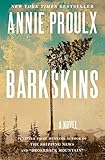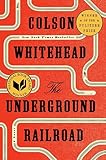 I’m a huge Charlie Rose fan. I DVR his show and watch it in the evenings while I eat chocolate pudding. I love Rose’s interview style — engaged but relaxed; the hint of North Carolina accent, and the fact that when the camera pans back too far, I can see his New Balance sneakers. There’s something about that dark set that comforts me. No fake skyline, no news crawl along the bottom of the screen. Just a black backdrop and two glasses of water on the big oak table. Last March, Rose interviewed author David Payne, whose new memoir, Barfoot to Avalon, had just been released. I’d never heard of David Payne. But I leaned forward when Rose mentioned that David Payne was known for his long, meandering sentences. I love a lyrical, beautifully crafted sentence that takes me on a journey, and by the time Payne finished reading the opening pages of chapter one, the scene where he and his younger brother pack up Payne’s Vermont house and load the last of his possessions into the rented U-Haul so Payne can drive to North Carolina to salvage his marriage, I’d set down my chocolate pudding and found the book on Amazon. They were out of stock. The next morning, I headed to my local bookstore to see if they had any copies. No luck, the clerk said. They’d sold out. He offered to order a copy, but it was backordered from the publisher and wouldn’t be in for a week. I had to have that book. So, I downloaded the audio version and listened for the entire six-hour drive to Los Angeles the next day and for the entire six-hour drive back. I didn’t stop food. I didn’t stop to pee. I just stared through the windshield and gripped the steering wheel, carried along the twisting path of Payne’s wrenching narrative of alcoholism and generations of family dysfunction. Payne is indeed the master of the long sentence, but also of the extended metaphor, time and space. By the time I got back to San Francisco, my dashboard light was blinking. I had less than a mile’s worth of gas left in my tank. When my hard cover arrived, I sat down with a cup of tea and started at page one. I already knew the story, but now I needed to absorb it. That’s how good this book is.
I’m a huge Charlie Rose fan. I DVR his show and watch it in the evenings while I eat chocolate pudding. I love Rose’s interview style — engaged but relaxed; the hint of North Carolina accent, and the fact that when the camera pans back too far, I can see his New Balance sneakers. There’s something about that dark set that comforts me. No fake skyline, no news crawl along the bottom of the screen. Just a black backdrop and two glasses of water on the big oak table. Last March, Rose interviewed author David Payne, whose new memoir, Barfoot to Avalon, had just been released. I’d never heard of David Payne. But I leaned forward when Rose mentioned that David Payne was known for his long, meandering sentences. I love a lyrical, beautifully crafted sentence that takes me on a journey, and by the time Payne finished reading the opening pages of chapter one, the scene where he and his younger brother pack up Payne’s Vermont house and load the last of his possessions into the rented U-Haul so Payne can drive to North Carolina to salvage his marriage, I’d set down my chocolate pudding and found the book on Amazon. They were out of stock. The next morning, I headed to my local bookstore to see if they had any copies. No luck, the clerk said. They’d sold out. He offered to order a copy, but it was backordered from the publisher and wouldn’t be in for a week. I had to have that book. So, I downloaded the audio version and listened for the entire six-hour drive to Los Angeles the next day and for the entire six-hour drive back. I didn’t stop food. I didn’t stop to pee. I just stared through the windshield and gripped the steering wheel, carried along the twisting path of Payne’s wrenching narrative of alcoholism and generations of family dysfunction. Payne is indeed the master of the long sentence, but also of the extended metaphor, time and space. By the time I got back to San Francisco, my dashboard light was blinking. I had less than a mile’s worth of gas left in my tank. When my hard cover arrived, I sat down with a cup of tea and started at page one. I already knew the story, but now I needed to absorb it. That’s how good this book is.

 I’m a sucker for Annie Proulx. Have been since The Shipping News. I once trekked downtown through a thunderstorm to hear her speak, and couldn’t stop my hand from quivering when I asked her to sign my book. Her latest novel, Barkskins, is a masterpiece, but hasn’t, in my opinion, received the attention it deserves. Weighing in at a whopping 713 pages, it’s a delicious doorstop of a historical novel, perfect for long winter nights. Spanning 300 years, it chronicles the lives of two penniless Frenchman, who arrive in 17th-century Canada, known then as New France, and their descendants, and their travels across North America, Europe, China, and New Zealand. Like Proulx, I’m a huge believer in bond between character and place. Place is character and character is place. The two go hand in hand. The first paragraph of Barkskins reads, “In the twilight they passed bloody Tadoussac, Kebec and Trois-Rivieres and near dawn moored at a remote riverbank settlement…Mosquitoes covered their hands and necks like fur…Mud, rain, biting insects and the odor of willows made the first impressions of New France. The second impression was of dark vast forest, inimitable wilderness.” What else do you need to know?
I’m a sucker for Annie Proulx. Have been since The Shipping News. I once trekked downtown through a thunderstorm to hear her speak, and couldn’t stop my hand from quivering when I asked her to sign my book. Her latest novel, Barkskins, is a masterpiece, but hasn’t, in my opinion, received the attention it deserves. Weighing in at a whopping 713 pages, it’s a delicious doorstop of a historical novel, perfect for long winter nights. Spanning 300 years, it chronicles the lives of two penniless Frenchman, who arrive in 17th-century Canada, known then as New France, and their descendants, and their travels across North America, Europe, China, and New Zealand. Like Proulx, I’m a huge believer in bond between character and place. Place is character and character is place. The two go hand in hand. The first paragraph of Barkskins reads, “In the twilight they passed bloody Tadoussac, Kebec and Trois-Rivieres and near dawn moored at a remote riverbank settlement…Mosquitoes covered their hands and necks like fur…Mud, rain, biting insects and the odor of willows made the first impressions of New France. The second impression was of dark vast forest, inimitable wilderness.” What else do you need to know?


 I spent a lot of 2016 feeling outraged. Too many black bodies killed. Too much intolerance and fear, too many acquittals, too little justice. Three books helped me maintain my sanity as I struggled to make sense of these strange and discouraging times. First up, Robin Coste Lewis’s award-winning book of poetry Voyage of the Sable Venus. Readers should be prepared to be crushed by the sheer accumulation of images of the black female figure as Lewis chronicles their appearance in centuries of Western art. Slowly, the narrative takes shape and we’re left to both ponder what it means to be a black and female, celebrated and objectified. Next, Colson Whitehead’s The Underground Railroad, a book of such brutality and clarity that when I finished, for 20 minutes, all I could do was stare out the window. Whitehead draws chilling parallels between the antebellum South and modern American life as he chronicles Cora’s escape from her Georgia plantation to the north. No surprise it won the National Book Award. When I finished Underground Railroad, I picked up Ben H. Winters’s Underground Airlines. Talk about jumping out of the frying pan into the fire. Where Whitehead examines slavery from a historical vantage point, Winters imagines how slavery might work today. The novel’s conceit is that the Civil War was never fought. Abraham Lincoln was assassinated before he could take office and slavery has been contained to four Southern states known as “The Hard Four,” Louisiana, Mississippi, Alabama, and a unified Carolina. No spoilers here. All I’ll say is read the first chapter and see how you feel. But don’t say I didn’t warn you.
I spent a lot of 2016 feeling outraged. Too many black bodies killed. Too much intolerance and fear, too many acquittals, too little justice. Three books helped me maintain my sanity as I struggled to make sense of these strange and discouraging times. First up, Robin Coste Lewis’s award-winning book of poetry Voyage of the Sable Venus. Readers should be prepared to be crushed by the sheer accumulation of images of the black female figure as Lewis chronicles their appearance in centuries of Western art. Slowly, the narrative takes shape and we’re left to both ponder what it means to be a black and female, celebrated and objectified. Next, Colson Whitehead’s The Underground Railroad, a book of such brutality and clarity that when I finished, for 20 minutes, all I could do was stare out the window. Whitehead draws chilling parallels between the antebellum South and modern American life as he chronicles Cora’s escape from her Georgia plantation to the north. No surprise it won the National Book Award. When I finished Underground Railroad, I picked up Ben H. Winters’s Underground Airlines. Talk about jumping out of the frying pan into the fire. Where Whitehead examines slavery from a historical vantage point, Winters imagines how slavery might work today. The novel’s conceit is that the Civil War was never fought. Abraham Lincoln was assassinated before he could take office and slavery has been contained to four Southern states known as “The Hard Four,” Louisiana, Mississippi, Alabama, and a unified Carolina. No spoilers here. All I’ll say is read the first chapter and see how you feel. But don’t say I didn’t warn you.
More from A Year in Reading 2016
Don’t miss: A Year in Reading 2015, 2014, 2013, 2012, 2011, 2010, 2009, 2008, 2007, 2006, 2005









